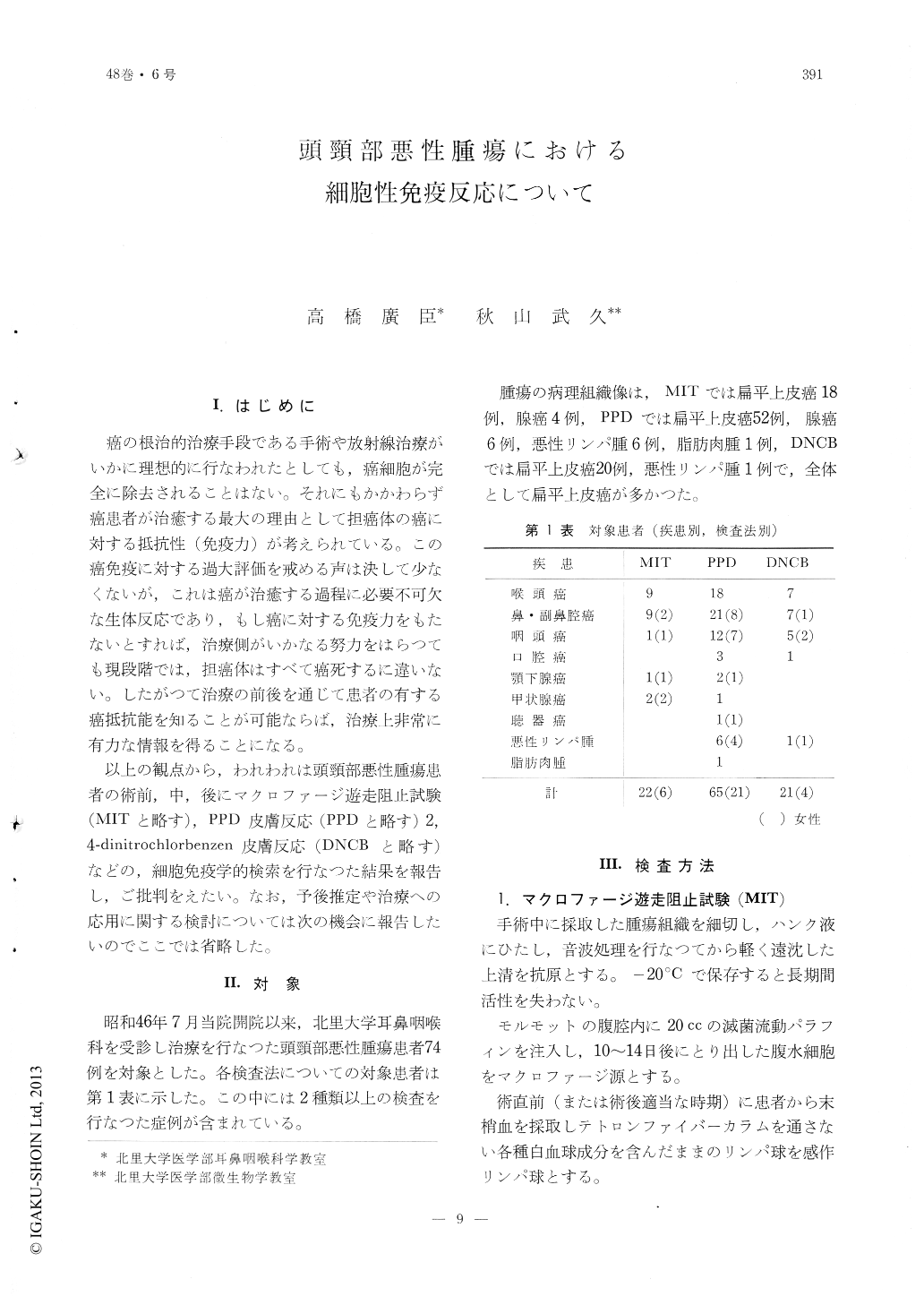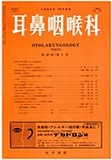Japanese
English
- 有料閲覧
- Abstract 文献概要
- 1ページ目 Look Inside
I.はじめに
癌の根治的治療手段である手術や放射線治療がいかに理想的に行なわれたとしても,癌細胞が完全に除去されることはない。それにもかかわらず癌患者が治癒する最大の理由として担癌体の癌に対する抵抗性(免疫力)が考えられている。この癌免疫に対する過大評価を戒める声は決して少なくないが,これは癌が治癒する過程に必要不可欠な生体反応であり,もし癌に対する免疫力をもたないとすれば,治療側がいかなる努力をはらつても現段階では,担癌体はすべて癌死するに違いない。したがつて治療の前後を通じて患者の有する癌抵抗能を知ることが可能ならば,治療上非常に有力な情報を得ることになる。
以上の観点から,われわれは頭頸部悪性腫瘍患者の術前,中,後にマクロファージ遊走阻止試験(MITと略す),PPD皮膚反応(PPDと略す)2,4-dinitrochlorbenzen皮膚反応(DNCBと略す)などの,細胞免疫学的検索を行なつた結果を報告し,ご批判をえたい。なお,予後推定や治療への応用に関する検討については次の機会に報告したいのでここでは省略した。
Immunologic reactivity in cancers of the head and neck were studied in 74 patients by means of MIT, PPD and DNCB reactions. With MIT there were more positive cases among patients affected with laryngeal cancer and more negatives in cases affected with maxillary and thyroid cancers. There was a tendency among the MIT positive cases to become negative within 7 to 45 days thereafter.
In PPD positive cases, which rated 58.5% and lower than that of the normal individuals and besides being completely free from total bodily metastasis, the degree of metastatic activity, otherwise, showed difference. Except in cases of patients in the higher age bracket, 70 years or older, the positive rate became proportionately increased.
DNCB was 28.6% in positive rate.

Copyright © 1976, Igaku-Shoin Ltd. All rights reserved.


